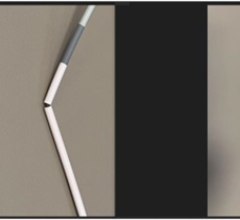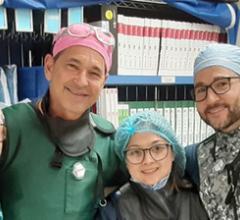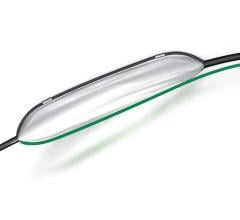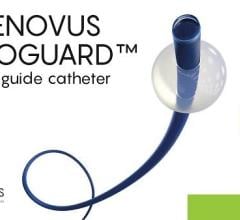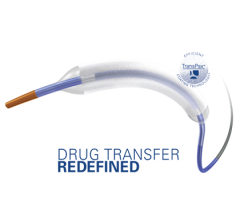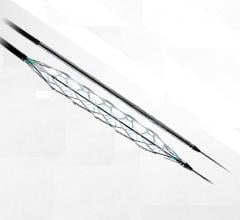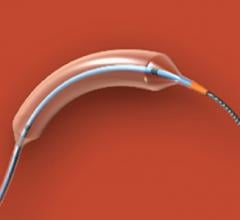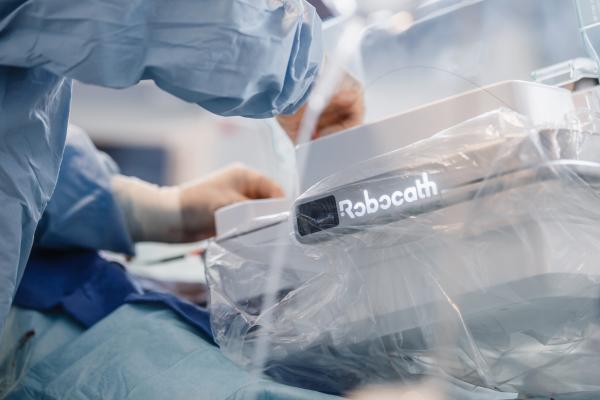
149 patients enrolled over six months in four Chinese centers
July 21, 2022 — Robocath, a company that designs, develops and commercializes innovative robotic platforms for the treatment of vascular diseases, announced that its joint venture, Cathbot, established in 2020 with MicroPort through its robotic subsidiary MedBot, has enrolled the last patient in its clinical study in China. This is the first step towards obtaining approval from China’s National Medical Products Administration (NMPA) for the commercialization of R-One™, its robotic solution for PCI (Percutaneous Coronary Intervention) in the Chinese market, where this is the first clinical study conducted on this scale in the field of vascular robotics.
This multi-center clinical study began in November 2021 and has enrolled 149 patients over six months, right on schedule despite the sanitary conditions linked to Covid-19. Four hospital centers participated in the trial: the No. 301 Hospital, the leading unit, with Professor Yundai Chen; the Shanxi Cardiovascular Hospital, with Professor Jian An; the Meizhou People's Hospital, with Professor Zhixiong Zhong, and the People's Hospital of Xinjiang Uygur Autonomous Region, with Professor Yining Yang. The last patient was enrolled in May 2022.
“I am deeply impressed by the accuracy and quick learning curve of R-One. Not only can it complete the positioning of the balloon and stent catheter precisely, it also enables manipulation of two guidewires, one of them being parked in a stand-by path, facilitating complex PCI presenting tortuous and/or calcified lesions. This could reduce the risk of intraoperative and post-operative complications, which would benefit both patients and operators,” said Professor Yundai Chen, director of the cardiology department at the No. 301 Hospital.
“The simple and intuitive design of R-One is very convenient for doctors to operate with. We can get started after only short-term training. Additionally, we can complete the intervention whilst being totally protected by sitting in front of the X-ray-proof console and manipulating the devices using only the joysticks. We look forward to working with R-One on a daily basis to benefit more patients and doctors,” commented Professor Jian An, department of cardiovascular medicine, dean of the Shanxi Cardiovascular Hospital.
“R-One drastically improves our working conditions. First, we can operate while fully protected from radiation; compared to manual interventions where we need to stand for long hours, only a few centimeters from the X-ray tube, which can induce serious diseases, like cancer, and orthopedic injuries. Second, it offers a high level of precision which directly benefits the patient,” added Professor Zhixiong Zhong, dean of the Meizhou People's Hospital.
“During the clinical trial, R-One has been reliable in several consecutive PCI procedures. This technology will benefit doctors and many patients living with cardiovascular diseases all over the country: today, in China, more than one million procedures are performed annually across roughly 2,000 PCI centers,” noted Professor Yining Yang, dean of the People’s Hospital of Xinjiang Uygur Autonomous Region.
“The completion of this clinical trial is a crucial milestone in our development. It is the first PCI robotic multicenter trial completed in China. I am very impressed with the commitment of the Cathbot team and the medical staff. They worked very hard to make it happen on time and to maintain our strategic plans despite the lockdowns. I sincerely thank all of them. Our greatest global ambition is to be able to better treat cardiovascular diseases. R-One will allow the medical staff to work safely while bringing precision to the intervention,” said Philippe Bencteux, president and founder of Robocath and president of Cathbot.
“We look forward to receiving the results of this study, that will undoubtedly confirm the ease of use and intuitiveness of R-One. This clinical trial is the first step towards the commercialization of R-One in China,” added Lucien Goffart, CEO of Robocath.
“In the field of vascular robotics, the successful completion of this multi-center clinical trial project with R-One is an important milestone for Cathbot. It is of extraordinary significance for promoting more accurate and intelligent interventional medicine. In the future, R-One will be equipped with 5G and AI features, and combined with technologies such as vascular structure imaging and hemodynamic monitoring to achieve more innovative breakthroughs. Our ambition is to provide the best treatment for patients thanks to accurate, intelligent and better integrated robotic solutions,” concluded Dr. Chao He, president of MicroPort MedBot.
For more information: www.robocath.com

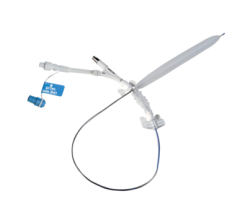
 June 13, 2024
June 13, 2024 
